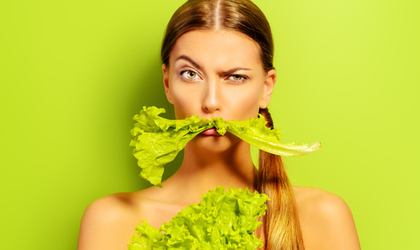
A vegan diet omits all animal-based products, including dairy, eggs, and gelatin. People follow veganism for different reasons, ranging from wanting to improve their health to protecting the environment.?
However, even with carefully planned meals and snacks, it can still be relatively challenging to get the full gamut of nutrients on a vegan diet. As a vegan, you run the risk of falling short of some of the most important nutrients found in animal products, such as vitamin B12.
For that reason, it can be helpful to supplement with a multivitamin to cover any nutritional shortfalls. And as the interest in veganism continues to grow in the UK, so too do the vegan-friendly multivitamins available on the market.?
Can vegans take multivitamins?
Absolutely! In fact, we strongly recommend them to ensure you’re hitting every nutritional note. But before investing in a new formula, it’s always important to check the label to determine if it’s vegan-friendly, as some multis may contain animal products. ?
How are vegan multivitamins different?
Aside from excluding animal-derived ingredients commonly found in other supplements, such as gelatin, vegan multivitamins generally provide relevant yet safe amounts of vitamin B12, iron, vitamin D3, calcium, iodine, and zinc – nutrients that you may not otherwise get enough of on a plant-based diet. You can find an excellent spread of these vitamins and minerals in Multi-Guard Active.
Why should vegetarians and vegans take multivitamins?
The biggest concern with vegetarian and vegan diets is eliminating the main food groups. By cutting out animal-based products, like meat, fish, eggs and dairy, you may fall short in some essential micronutrients, such as vitamin B12, iron, vitamin D3, calcium, iodine, zinc, and omega-3 fatty acids. A shortfall in any one of these food groups may affect your bone health, energy levels, mood, and cognition.?
As a vegetarian or vegan, you need to plan your food choices carefully – and supplementing with a broad-spectrum, vegan-friendly multivitamin serves as a helpful insurance policy to cover any nutritional shortfalls you may encounter.
It’s also worth mentioning that following a vegan diet doesn’t always mean eating well. Some vegan products only have the allure of being healthy, containing excessive amounts of salt, sugar, and highly processed ingredients, such as veggie burgers and fake meats.?
And so, although taking a vegan multivitamin should never excuse poor eating habits, it may help cover any dietary shortfalls if your diet isn’t always well-balanced.
Where can vegans get B12?
TTraditionally found in animal sources, vitamin B12 is essential for those on a vegan diet. This nutrient contributes to normal energy-yielding metabolism, psychological function, immune function, and a reduction of tiredness and fatigue. Without enough vitamin B12, you may experience tiredness, irritability, low mood, and even cognitive changes.
Besides eating foods fortified with vitamin B12, such as nutritional yeast, plant-based milk, and some cereal, adding a high-strength supplement to your diet is the only reliable way to achieve the recommended daily allowance of 1.5 micrograms (mcg). Fortunately, most vegan multivitamins provide this amount – if not more.?
Taking a multivitamin is always an excellent insurance policy to cover all your nutritional bases, especially if you have specific dietary requirements, such as following a vegan diet, which can mean you may fall short in certain nutrients.? ?
If you still have any questions about vegan multivitamins, please reach out to one of our expert Nutrition Advisors. You can also browse our full multivitamin range here.
References
- nhs.uk. 2021. Vitamin B12 or folate deficiency anaemia - Symptoms. [ONLINE] Available at: https://www.nhs.uk/conditions/vitamin-b12-or-folate-deficiency-anaemia/symptoms/
Related Posts
Disclaimer: The information presented by Nature's Best is for informational purposes only. It is based on scientific studies (human, animal, or in vitro), clinical experience, or traditional usage as cited in each article. The results reported may not necessarily occur in all individuals. Self-treatment is not recommended for life-threatening conditions that require medical treatment under a doctor's care. For many of the conditions discussed, treatment with prescription or over the counter medication is also available. Consult your doctor, practitioner, and/or pharmacist for any health problem and before using any supplements or before making any changes in prescribed medications.

Keri
Keri Filtness has worked in the Nutrition Industry for 19 years. She is regularly called upon for her professional comments on health and nutrition related news. Her opinions have been featured by BBC3, Prima, Vitality, The Mirror, Woman’s Own and Cycling Weekly, amongst others. She has also worked one to one with journalists, analysing their diets and health concerns and recommending changes and additions, where appropriate.



